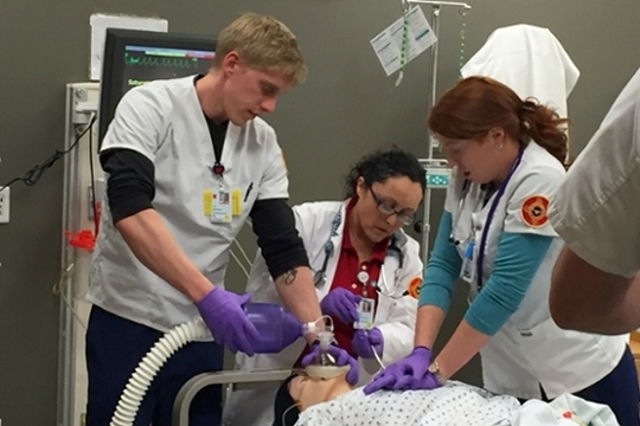
Nursing ETDs
Publication Date
1-31-2013
Abstract
Since the introduction of national cervical cancer screening in the 1960s, the mortality rates for cervical cancer have decreased significantly in most Western European nations. The countries of the European Union (EU) employ both opportunistic and organized screening programs for cervical cancer using Papanicolaou (Pap) smears as the method of screening. However, data from 2000 showed that Germany, an EU member, had a considerably higher incidence of cervical cancer mortality than did the EU. Study findings in the United States, Australia, and Thailand indicated that participation of Thai women was suboptimal. The extent to which those findings apply to Thai women in other countries is not known. The purpose of this focused ethnographic study was to determine the knowledge and attitudes about cervical cancer among Thai women living in Germany, their health beliefs and practices regarding cervical cancer, their cervical cancer screening practices, and the barriers to participation in cervical cancer screening. The Health Belief Model provided the theoretical guidance for the development of the research questions and the interview guide that was used in the interviews. Data were collected via semistructured interviews with 30 Thai immigrant women and 2 practicing German health care providers. Data were analyzed inductively through the process of immersion and crystallization. Key findings indicated that all participants had heard about cervical cancer screening and described their knowledge of cervical cancer based on personal, traditional, and clinical knowledge. Participants integrated both traditional and modern health beliefs and practices, which influenced their cervical cancer screening practices. Participants offered an array of cervical cancer prevention practices, including having a yearly Pap test. Personal, cultural, and health care system barriers were identified. Age, levels of education, and socioeconomic status did not seem to be factors in participating in screening, whereas having health insurance seemed to increase the likelihood of participation. The findings of this study may assist German health care providers in gaining insight and a more in-depth understanding of the cultural implications and barriers that may prevent Thai women from seeking early screening, thus, having a direct impact on immigrant Thai womens preventative health.
Degree Name
Nursing
Level of Degree
Doctoral
Department Name
College of Nursing
First Committee Member (Chair)
Carlson, Karen
Second Committee Member
Parshall, Mark
Third Committee Member
Brooks, Annette
Sponsors
Partially funded by a small grant from The Honor Society of Nursing Sigma Theta Tau International
Keywords
Cervical cancer screening, Knowledge, beliefs, attitudes regarding cervical cancer and screening, Thai immigrant women, Thai women living in Germany, Barriers to cervical cancer screening
Language
English
Document Type
Dissertation
Recommended Citation
Ice, Unchalee. "Knowledge, attitudes, and beliefs regarding cervical cancer and screening and perceived barriers to cervical cancer screening programs among Thai immigrant women living in Germany." (2013). https://digitalrepository.unm.edu/nurs_etds/7
